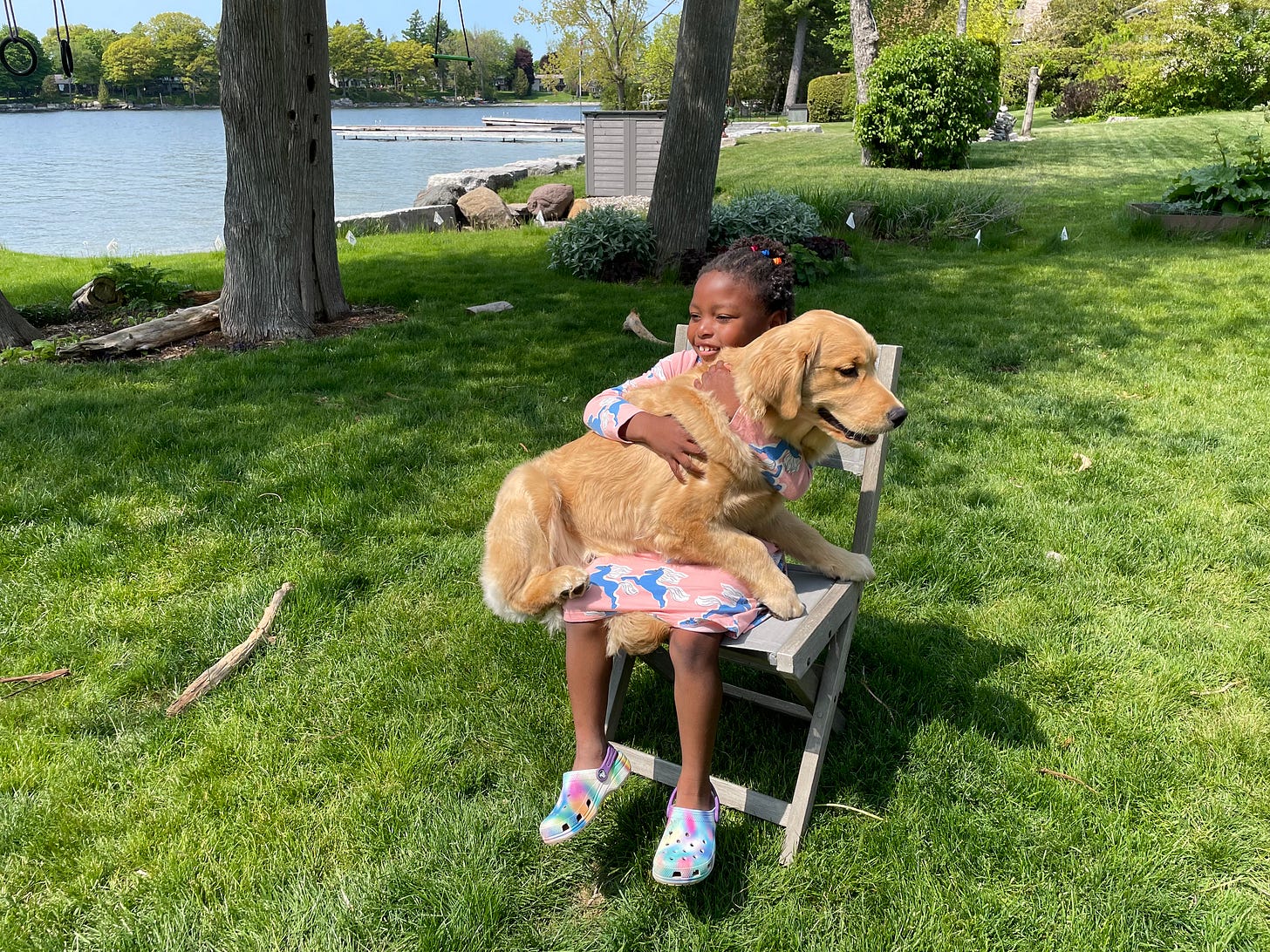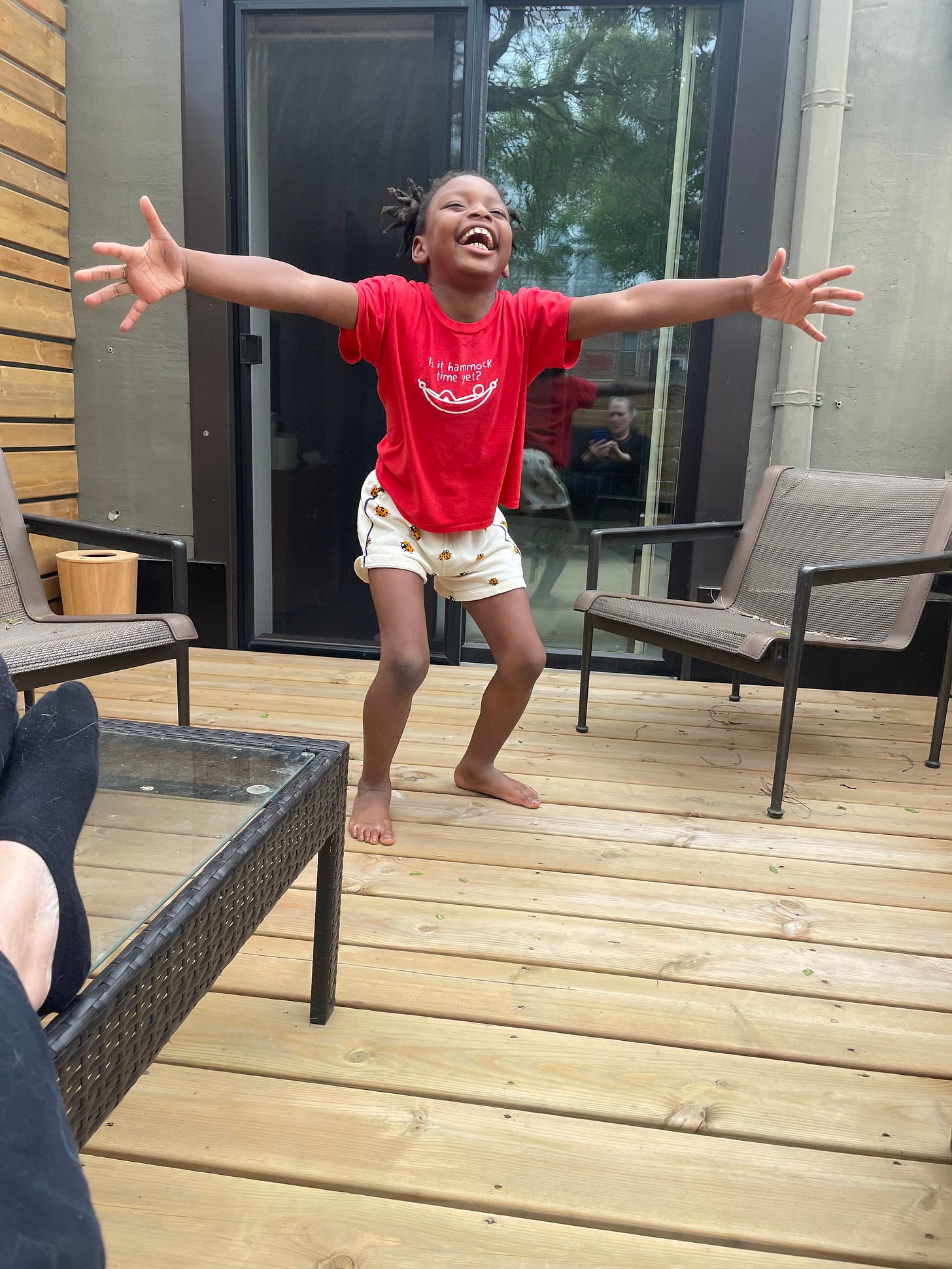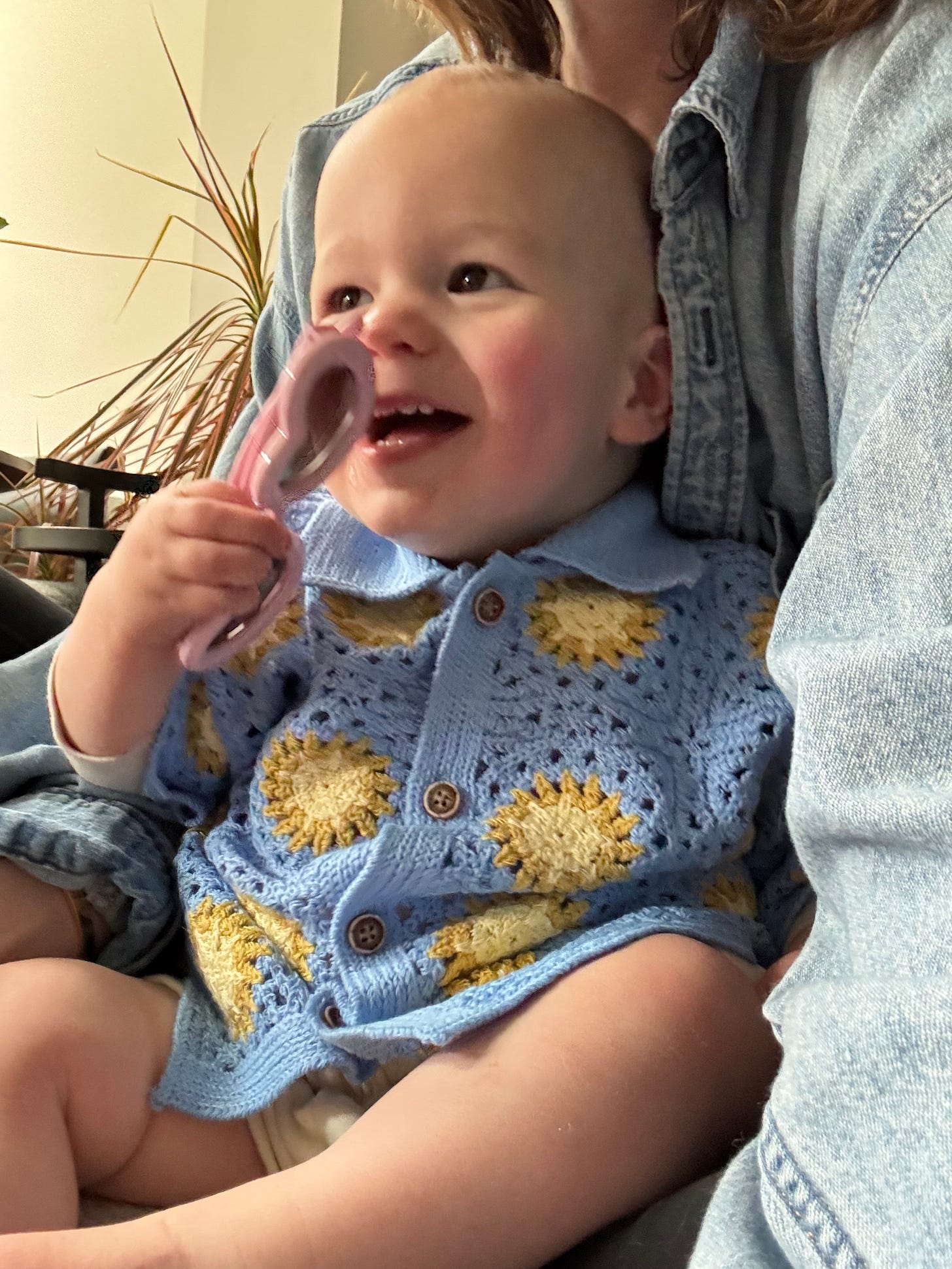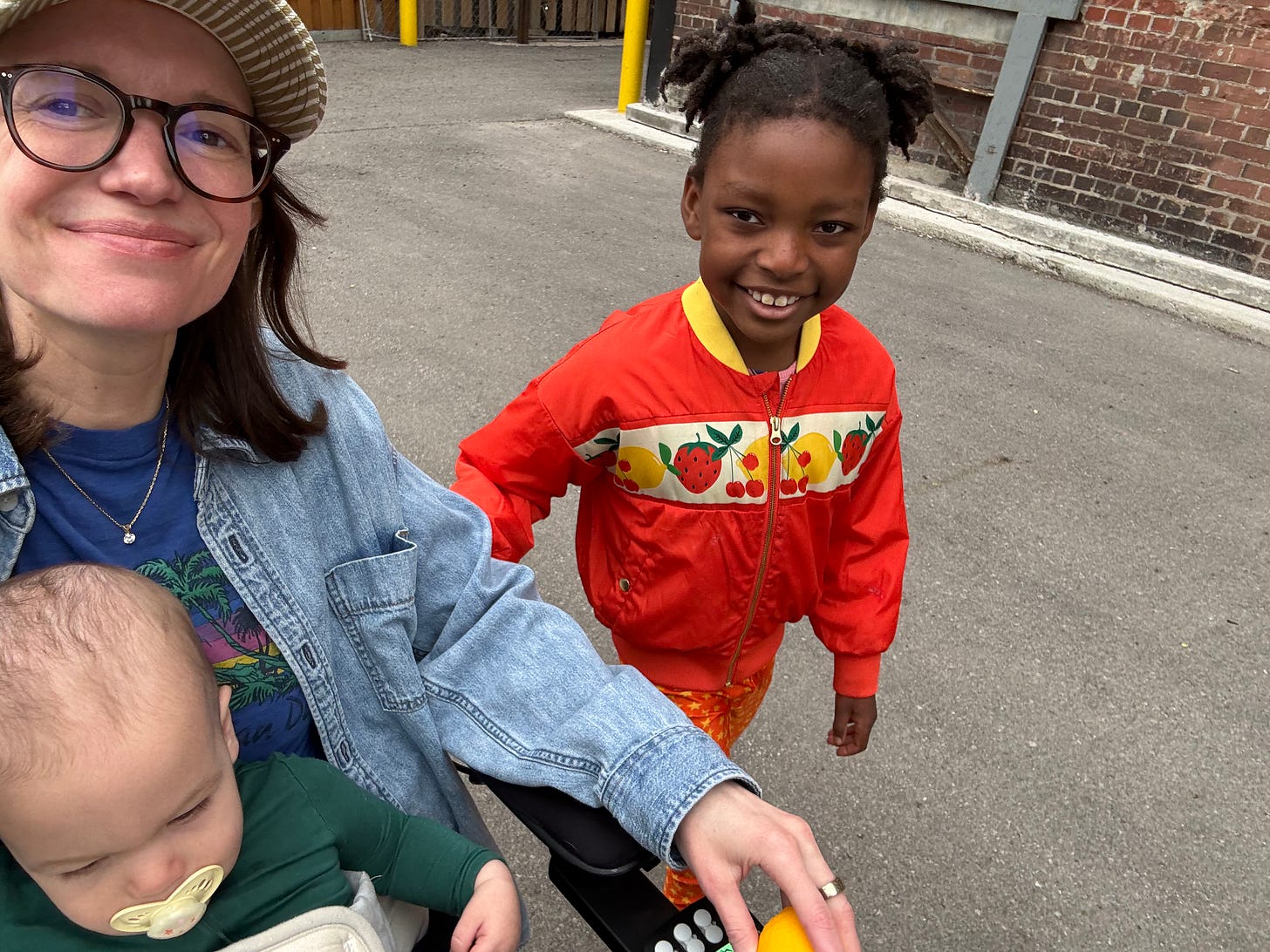(Book news/housekeeping at the end. But, please, if you haven’t, consider purchasing Unfit Parent)
One year ago, we were living in a 1970s split-level on Lake Ontario about 2 hours from Toronto. Spring started there with the frozen lake thawing and the tiny leaves poking up through the mulch. The prior owner was an expert gardener, and that yard brought new gifts every week from April to October, starting with crocuses and ending with apples.
We are now right in the center of Toronto. There are crocuses on our street, and a few tulips in our yard, but we are largely surrounded by buildings, and those are, obviously, unchanged from season to season. The biggest shift I’ve noticed is that the shadows inside have softened this May. Instead of direct light, it’s dappled through leaves.
During the 2017 eclipse, we lived in Oakland, California, and it was there that I learned that the shape of light through leaves is a circle and that during an eclipse, hundreds of crescents dance around. I still cannot understand how that is possible. But now, every time I see sun filtered through a tree, I look for all the little circles.
I’ve been thinking a lot about this month’s newsletter. Unfit Parent has been out for a month, and there are a few hundred new subscribers here.
Hi. Thank you.
How do I talk about the book release? Our family life right now? Disability? The fact that the UN says that half a million people are at risk of catastrophic starvation, even though food is stockpiled only a few hours away?
I’ve given dozens of interviews over the last months, and every single one lands in the same place: suffering. What do we do with it? How do we contextualize it? Ease it? Survive it? How do I think about the fact that I live in a body that hurts every single moment of every single day?
I keep thinking about a conversation I had with Virginia Sole-Smith about care vs. fixing. We talked about how, when it comes to our bodies and minds, the drive to optimize or perfect them is doomed and ends with shame. She and I both advocate for the acceptance of disabled and fat bodies. But, of course, acceptance doesn’t mean resigning ourselves to entropy: we brush our teeth and try to eat vegetables and wear seatbelts.
The conversation has made me think about what that balance looks like when it comes to justice. How do we accept the fact that this entire world is marred with suffering and people hurting one another?
This is where I am now: when we expect to be able to achieve perfection (personally, collectively), we become either punishing or resigned. We allow ourselves to go numb because we cannot find a way to hold the enormity of the world’s pain. We can’t even hold the enormity of our own personal tragedies.
But when we know that our efforts are doomed, and decide to care anyway, we become more human.
We must fight injustice with our whole selves. We have to ache when people suffer. We have to use our power, our money, our voice to bend the arc.
If you can, please join me in donating to the Palestinian Children’s Relief Fund. There are disabled children, trapped without care, and PCRF offers a way out. You can watch Ms. Rachel sing with Rahaf, who they helped access medical care here. If you send me a photo of your donation, I will match it.
There’s a Mary Oliver (of course) poem I’ve loved for over a decade now. May we find the fortitude to continue shoving our stubborn muzzles against the whole earth.
Moles
Under the leaves, under
the first loose
levels of earth
they're there -- quick
as beetles, blind
as bats, shy
as hares but seen
less than these --
traveling
among the pale girders
of appleroot,
rockshelf, nests
of insects and black
pastures of bulbs
peppery and packed full
of the sweetest food:
spring flowers.
Field after field
you can see the traceries
of their long
lonely walks, then
the rains blur
even this frail hint of them --
so excitable,
so plush,
so willing to continue
generation after generation
accomplishing nothing
but their brief physical lives
as they live and die,
pushing and shoving
with their stubborn muzzles against
the whole earth,
finding it
delicious.
Thank you to everyone who has purchased, reviewed, and shared Unfit Parent. It all means so much to me.
You can buy it here in the US or here in Canada.
And, if you’re interested, you can watch me talk about it on The Social (kind of like the Canadian View) here.
Or listen to me on NPR here and here.
Some of my favorite interviews have been on Substack with Ann Helen Petersen, Sara Petersen, Virginia Sole Smith, and Melinda Moyer.
I also loved this conversation with Ann Friedman.










Hi, Jessica, I know from reading your book that you hate to be called "amazing" so I won't do that. Yet, when I look what you have achieved - just here on Substack - I stand in awe and thank the world that you are in it.
Hi Jessica, would you ever consider writing about how you and your family manage having dogs? I’m pregnant, so temporarily disabled as you describe in your interview with Virginia Sole-Smith, and I feel like a slave to my collie mix’s walk schedule and boundless energy. Her leash pulling triggers my nausea and pulls my sensitive joints out of whack. I know the purpose of the newsletter is not just to shine a lens on your life but any tips for dog ownership that is not just more exercise, more training, and more effort would be so appreciated. 🙏🏼